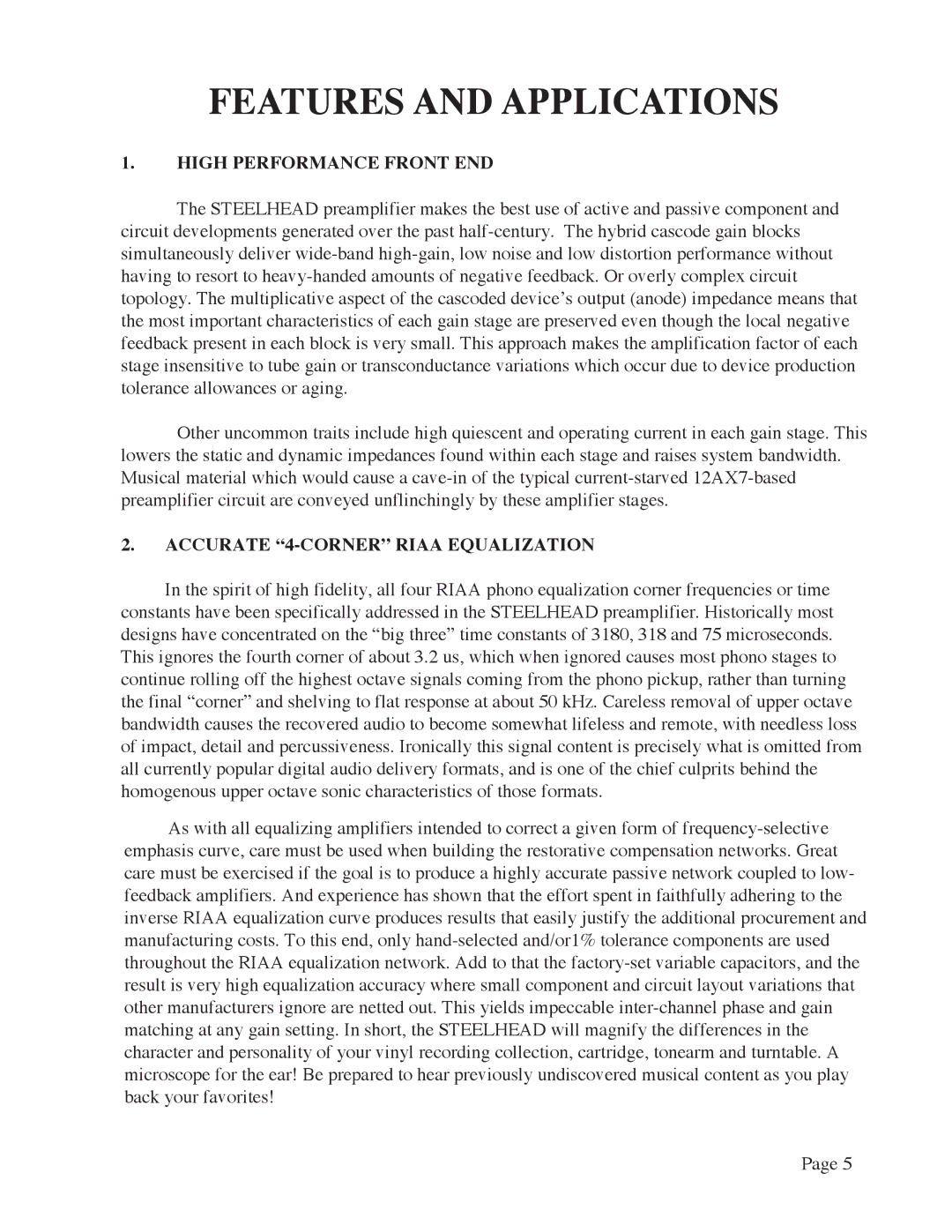MM/MC GRAMOPHONE CARTRIDGE PREAMPLIFIER specifications
The Manley Labs MM/MC Gramophone Cartridge Preamplifier stands as a remarkable piece of audio equipment, designed to elevate the listening experience for vinyl enthusiasts and audiophiles alike. Renowned for their expertise in high-fidelity audio, Manley Labs has crafted this preamplifier to deliver exceptional sound quality and versatile performance for both Moving Magnet (MM) and Moving Coil (MC) cartridges.One of the standout features of the MM/MC Gramophone Cartridge Preamplifier is its high-quality analog signal processing. The preamp employs vacuum tube technology, incorporating premium 12AX7 and 12AT7 tubes to provide a warm, rich sound that many listeners treasure. The implementation of soft and natural tube warmth contributes to an organic sound, preserving the authenticity of vinyl recordings while enhancing detail and nuance.
This preamplifier offers adjustable gain settings, allowing users to optimize performance according to their specific cartridge choice, be it MM or MC. With the capability to accommodate various cartridge output levels, the Manley Labs preamp ensures maximum adaptability. Users can switch between settings easily, ensuring compatibility with a wide range of turntables and cartridges.
Additionally, the MM/MC Gramophone Cartridge Preamplifier features high-quality components throughout its design. Its circuit topology is engineered to minimize noise and distortion, ensuring a clean signal path. The unit is also equipped with a low-frequency filter, which can be utilized to eliminate unwanted subsonic frequencies that could muddy the audio experience.
Another notable aspect of this preamp is its robust build quality. Encased in a sleek metal chassis, it combines aesthetics with durability, ensuring longevity while adding a stylish touch to any audio setup. The carefully designed layout not only contributes to the preamp’s performance but also showcases Manley Labs’ commitment to craftsmanship.
In conclusion, the Manley Labs MM/MC Gramophone Cartridge Preamplifier is a premium choice for vinyl lovers seeking a high-performance preamp that combines vintage warmth with modern adaptability. Its advanced features, high-quality components, and user-friendly design make it an essential addition for anyone looking to enhance their vinyl listening experience profoundly. With this preamplifier, Manley Labs continues to uphold its reputation for excellence in high-fidelity audio.
